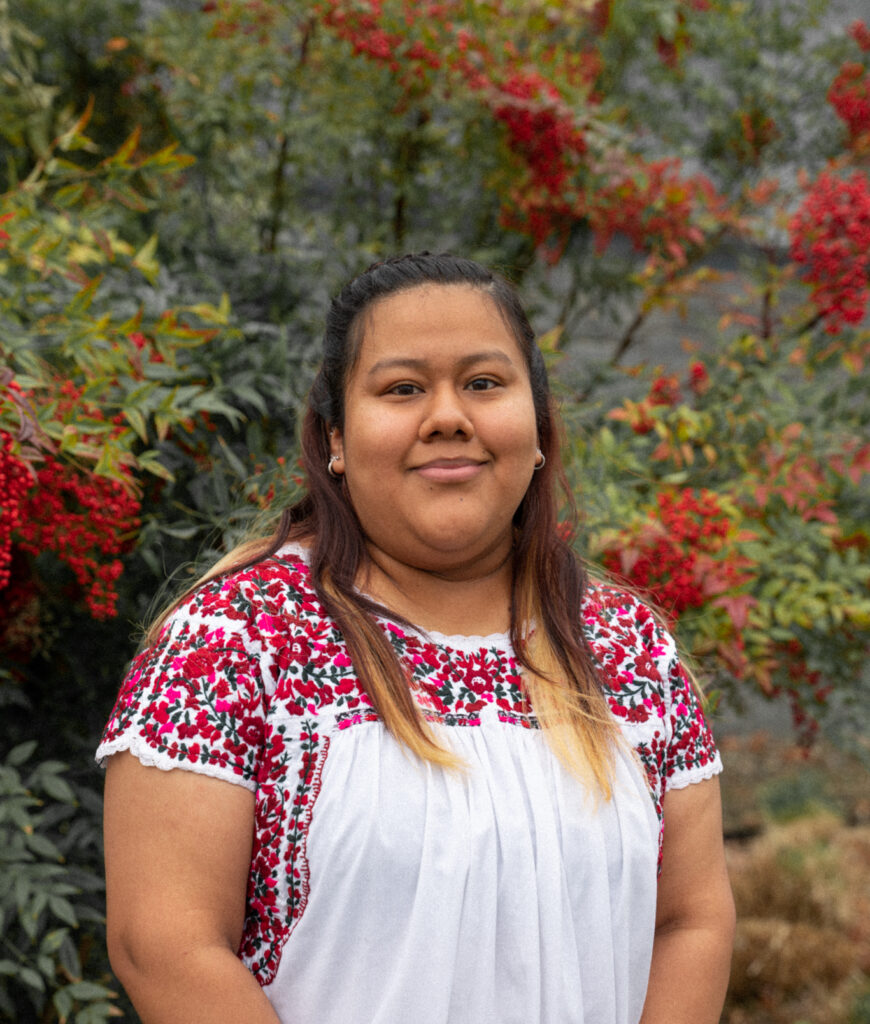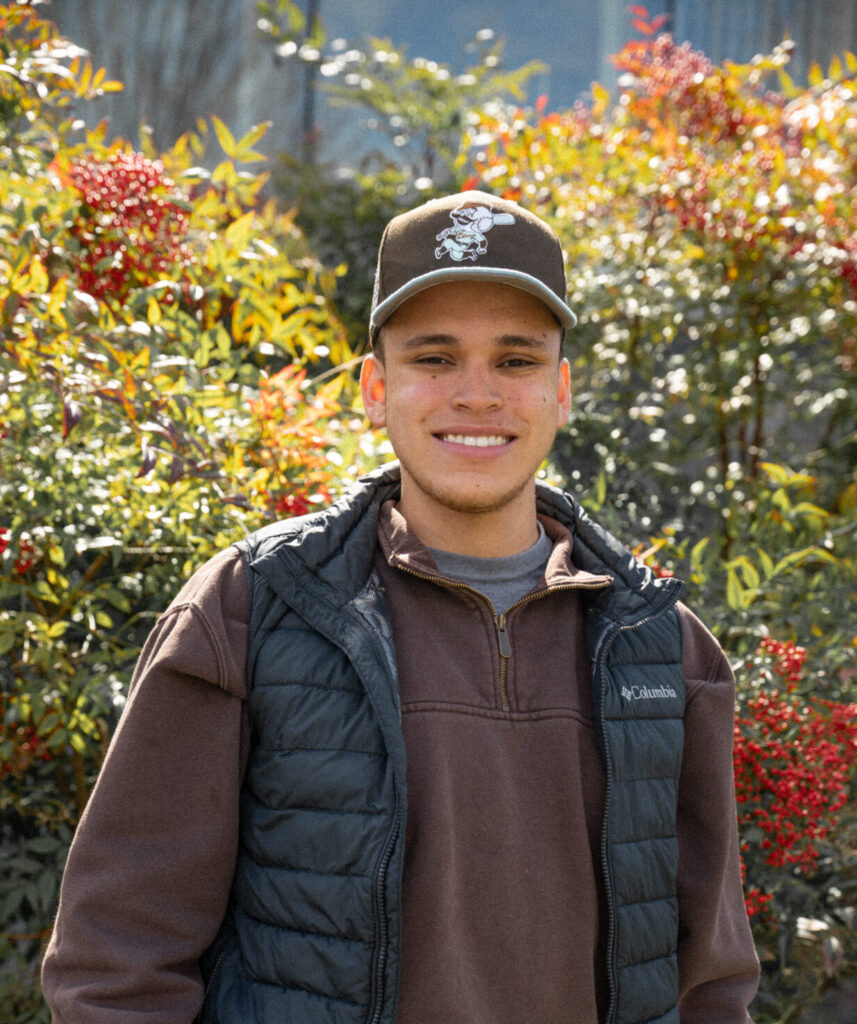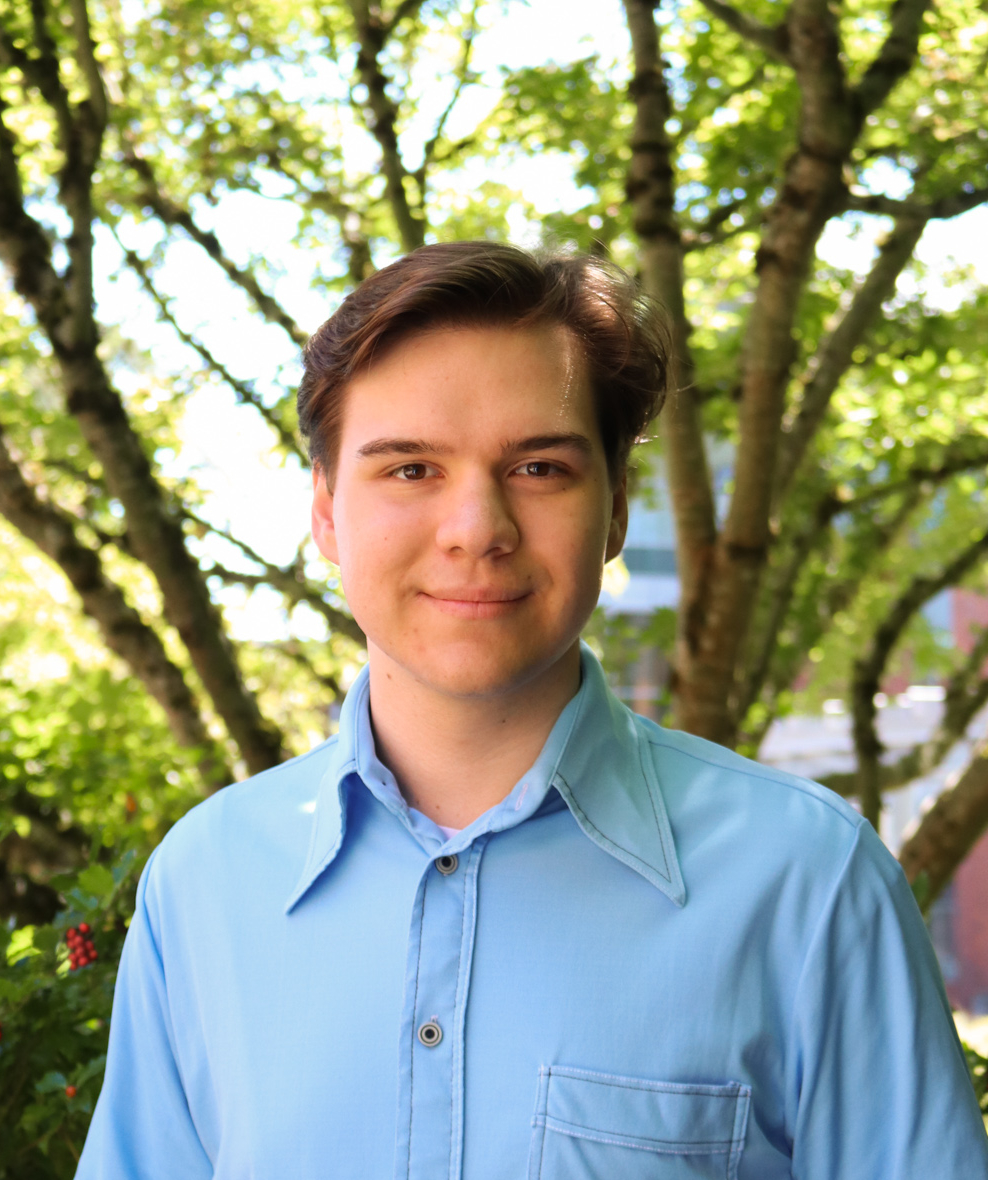This story was originally published in Vol. 33, Issue 8 (April 2023)
Diana Luis-Contreras and Samuel Crawford were elected as president and vice president of next year’s Associated Students of WSU Vancouver on March 9. In an interview with The VanCougar, the newly elected leaders shared their history on campus and their vision for the future.

(Josalyn Ortiz/The VanCougar)

(Josalyn Ortiz/The VanCougar)
Diana Luis-Contreras
Luis-Contreras, a psychology and human development double major, holds leadership positions in various organizations on campus – including treasurer and vice president of ArtX, and ASWSUV director of campus and community outreach.
Samuel Crawford
Crawford, a political science major, currently serves as a senator, founded the Students of Color Coalition and also holds positions in various other on-campus organizations such as the Pre-Law Society and the Student Activities Board.
Q: How do you plan to empower students and raise their voices?
Luis-Contreras: “When I was applying and talking to people about running for president, a lot of [students] mentioned that they didn’t really feel like their voice mattered … There is a lot of promotion when people are applying to college – it’s always like ‘diversity this, diversity that’ … There’s not a lot [of diversity] that’s on campus as much as it is shown [for] publicity. [We will be holding] two monthly meetings that are mainly focused on getting student opinions and student voices heard … The point of these meetings is to try to build [a] connection, making students aware that student government wants to know what their concerns are. One of the meetings will just be for all students, while the second one will focus on specific [identity-based] groups.”
Q: How will ASWSUV support identity-based clubs?
Luis-Contreras: “[Our] goal for next year is to work with CILA on campus to understand what months [are] associated with what clubs on campus – culturally or identity-wise – and [celebrating] them. … Something that we also added for the executive roles is making sure that our communications and marketing directors are working with those clubs to make sure that they’re getting the promotion and support that they need.”
Crawford: “[Improving] the clubs on campus is the main [goal]. A lot of these identity based clubs are sometimes struggling to stay afloat. We are working with them to build the groundwork to stay afloat for the whole year and to have success for multiple years to come. I think Coug Presence makes it kind of tough for clubs … it’s a difficult system to process, it’s very complicated and frustrating to use sometimes. It’s something we’ve both talked about and we’ll be looking into helping and providing workshops to make it easier for students.”
Q: What is the Diversity, Equity and Inclusion Committee?
Crawford: “The Justice Equity Diversity Inclusion Committee will be a new committee within the senate next year. It will focus on a lot of the issues that Diana said about amplifying student voices. If you look at our student government this year, it’s been predominantly white, and that’s kind of a thing that you see in student government and higher positions on campus. So working on combating those issues in whatever way the committee sees possible, whether that’s amplifying student voices, working to promote more cultural diversity on campus or making students feel safe and welcomed on campus. I think students, especially students of color, don’t feel their voices can be heard in spaces that matter. So just amplifying those voices and allowing those voices to feel safe on campus.”
Q: Can you explain your plan to build educational workshops for students, faculty and staff?
Crawford: “We will be working with some of our executive staff positions, mainly our director of leadership position, to provide educational workshops that address sexual harassment, racial bias and mental health so that people feel safe walking around campus, and don’t have issues such as microaggressions being taken to them.”
Q: How do you plan to provide accessibility to basic life necessities for students?
Luis-Contreras: “If you go to our food station, it’s just a lot of prepackaged frozen American food, so it would be really cool if they could switch it up, adding some food that people actually eat from different cultures and backgrounds. Currently within student government, there have been attempts in getting food trucks [on campus]. I think one of the issues they faced is getting food trucks willingly to come here because they feel like if they do, then they’re not going to make as much money as they would where they are stationed. If we’re able to continue the work that has been done this year and keep pushing it, hopefully we could maybe see food trucks next year on campus.”
Crawford: “One of the things we will continue to do is to promote the Food Pantry and help them in any way we possibly can. I think it’s a resource that is very useful but some people still don’t know about [it]. [Our focus is] allowing people to use that to then gain more funding and be able to show administrators and others that this is a resource that’s being used on campus, and that it needs more funding.”

Norman is a senior majoring in Integrated Strategic Communications and Digital Technology & Culture.